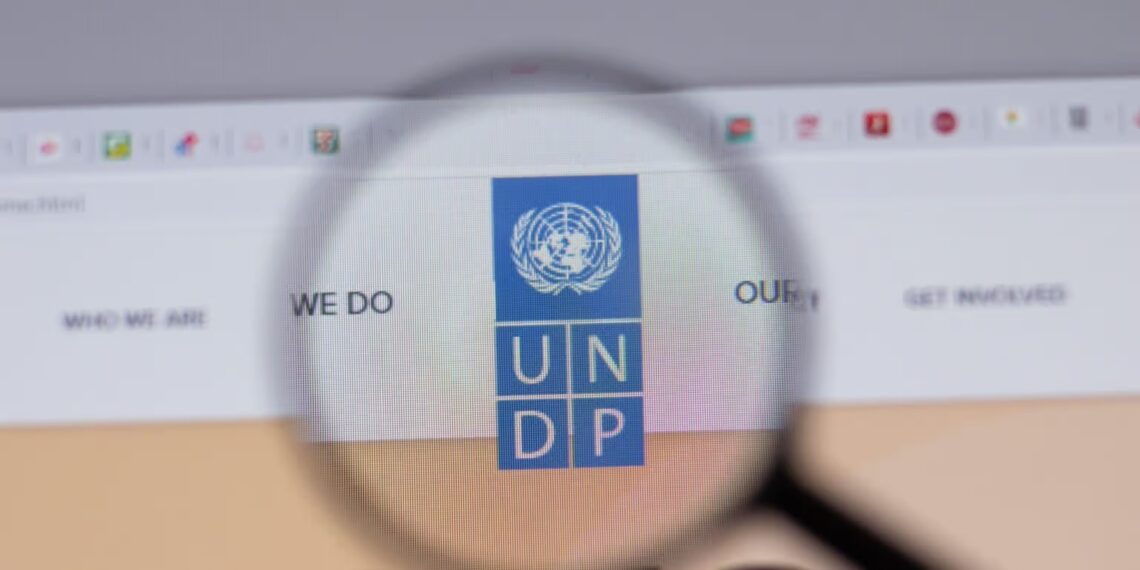by Stavroula Pabst, Daily Sceptic:

The United Nations Development Programme (UNDP) has quietly announced the rollout of an automated anti-disinformation tool, iVerify, this spring. The instrument, initially created to support election integrity, centres a multi-stakeholder approach spanning the public and private sectors to “provide national actors with a support package to enhance identification, monitoring and response capacity to threats to information integrity”.
TRUTH LIVES on at https://sgtreport.tv/
The UNDP demonstrates how iVerify works in a short video, where anyone can send articles to iVerify’s team of local “highly-trained” fact-checkers to determine if “an article is true or not”. The tool also uses machine learning to prevent duplicate article checks, and monitors social media for “toxic” content which can then be sent to “verification” teams of fact-checkers to evaluate, making it a tool with both automated and human-facilitated elements.
On its website, the UNDP makes a blunt case for iVerify as an instrument against “information pollution”, which they describe as an “overabundance” of harmful, useless or otherwise misleading information that blunts “citizens’ capacity to make informed decisions”. Identifying information pollution as an issue of urgency, the UNDP claims that “misinformation, disinformation and hate speech threaten peace and security, disproportionately affecting those who are already vulnerable”.
Misinformation, disinformation & hate speech threaten peace & security, disproportionately affecting those who are already vulnerable.
iVerify is our automated fact-checking tool that can help identify false information & prevent its spread.#NoToHate https://t.co/ura33T718V pic.twitter.com/VJzj9VxNUo
— UN Development (@UNDP) June 18, 2023
But, behind this rhetoric of fact-checking expertise and protecting society’s most marginalised, iVerify, as a tool functionally claiming an ability to separate the true from the false, actually provides governments, adjacent institutions, and the global elite an opportunity for unprecedented dismissal, and perhaps thus subsequent censorship, of dissenting perspectives and inconvenient information and reporting, all behind the pedigree of a UN institution with international reach.
iVerify and the Advance of an International Anti-Disinformation Complex
In recent years, the fact-checking industry has exploded, manifesting in the forms of often partisan, or otherwise compromised, fact-checking and anti-disinformation institutions and organisations. Examples include the government and Gates Foundation-funded Institute for Strategic Dialogue (ISD), the CIA-proxy National Endowment for Democracy (NED)-funded StopFake and internet trust rating-systems like NewsGuard, which partners with Microsoft and the U.S. Departments of Defence and State. By crystallising fact-checking and anti-disinformation operations’ place within the media sector and adjacent institutions and groups, such organisations’ work has ultimately paved the way for iVerify’s release.
In response to today’s fact-checking phenomenon, critiques and criticisms of the growing misinformation industries, which writer Michael Shellenberger describes as a “censorship industrial complex”, have grown in kind. Critics explain, for example, that no one person or organisation can claim unique ownership over or knowledge of the truth. And frequently, fact-checks boil down complex issues into matters of “true” and “false”, undermining the possibility for meaningful public debate about critical topics.
Perhaps anticipating these concerns, iVerify developers claim their instrument comes with a number of controls and safeguards to ensure its fact-checking processes are robust and do not inhibit civil liberties. In addition to guaranteeing “triple verification” of materials checked, and pairing fact-checking with the consultation of “all sides”, iVerify’s UNDP page clarifies that it will only debunk incorrect facts, not opinions.
The UNDP website also explains that “iVerify will only be deployed following an in-depth assessment to ensure the solution provided to a specific country will not be misused in ways that would undermine freedom of expression, freedom of the press or political and social rights”, though it provides little information as to how these pre-deployment assessments would be carried out.




